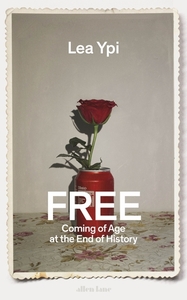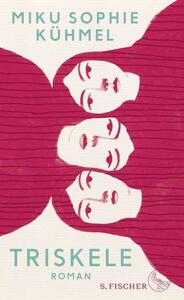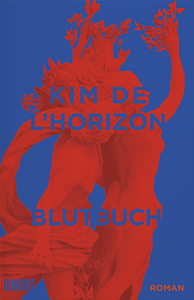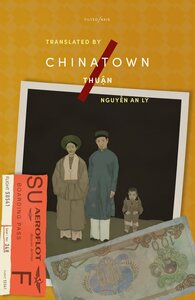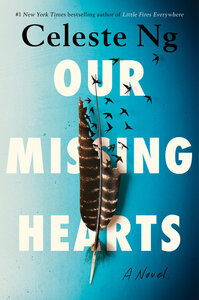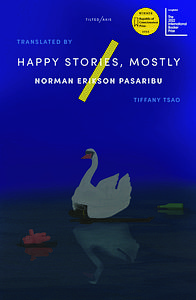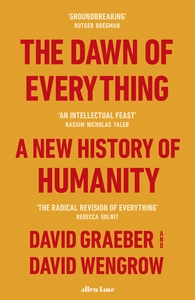You need to sign in or sign up before continuing.
Take a photo of a barcode or cover
pascalthehoff's reviews
404 reviews
Free is a vivid examination of the allure and shortcomings of both capitalism and (soviet-era) socialism via the example of Albania as one of the last Eastern European nations to be overturned in the 1990s.
It does a great job in explaining individual, minute reasons why many people in soviet-era socialist countries felt like they needed to break out. It's weird from a 21st century capitalist perspective to see people make such a big fuss about a can of coca cola. But capitalist artifacts like these – as well as the myriad of myths and romanticized ideas of the liberal world – show, in this gripping narrative, why there was such a desire for fundamental change.
At the same time, Free is even more successful in depicting what the shift to liberal capitalism felt like for a young person who has never known anything but authoritarian socialism and its propaganda. This shock is reinforced by the almost immediate realization that capitalism and a radically free market are (surprise!) not the solution to the problems that plagued Albania. Quite the opposite, actually – the same as it was in many other countries who went through a similar shock therapy during that time.
What makes the book truly special is how it is neither a stale history book, nor a formal autobiography. Its narrative is captivating to a point where it blurs the line between memoir and autobiographic novel. And this is why its insights and ideas, tied to the characters' fates, are so emphatic.
It does a great job in explaining individual, minute reasons why many people in soviet-era socialist countries felt like they needed to break out. It's weird from a 21st century capitalist perspective to see people make such a big fuss about a can of coca cola. But capitalist artifacts like these – as well as the myriad of myths and romanticized ideas of the liberal world – show, in this gripping narrative, why there was such a desire for fundamental change.
At the same time, Free is even more successful in depicting what the shift to liberal capitalism felt like for a young person who has never known anything but authoritarian socialism and its propaganda. This shock is reinforced by the almost immediate realization that capitalism and a radically free market are (surprise!) not the solution to the problems that plagued Albania. Quite the opposite, actually – the same as it was in many other countries who went through a similar shock therapy during that time.
What makes the book truly special is how it is neither a stale history book, nor a formal autobiography. Its narrative is captivating to a point where it blurs the line between memoir and autobiographic novel. And this is why its insights and ideas, tied to the characters' fates, are so emphatic.
Wo es Triskele an Originalität mangelt, gleicht es das mit Intimität und ansteckender Herzlichkeit zwischen den Figuren wieder aus. Sprachlich nicht sonderlich ausgeschmückt, liest sich Triskele umso flüssiger herunter. Stellenweise stechen einige der Zwischeneinwürfe zu Popkultur und Co. deplatziert edgy hervor… und das ist wahrscheinlich der höchste Grad an einzigartigem Charakter, den der Erzählstil hat.
Was mich am meisten irritiert hat: Die drei Charaktere (und Ich-Erzählerinnen) haben zwar ausgeprägte Persönlichkeiten, aber sie haben keine eigenen Stimmen. Szenen und Dialoge mit allen dreien sind dadurch zuweilen schwer nachzuverfolgen. Auch habe ich viel zu häufig vergessen, welche Ich-Erzählerin denn gerade das aktuelle Kapitel erzählt. Die gesamte Prämisse von Triskele ist doch, dass drei Schwestern sich durch ihre enormen Altersunterschiede (16, 36 und 48) enorm unterscheiden und deshalb verschiedene Perspektiven und Konflikte im Umgang mit dem Suizid der Mutter und dessen Auswirkungen entstehen. Da darf es doch eigentlich nicht passieren, dass ich die Ich-Stimme der Teenagerin – nicht immer, aber oft genug – mit der Stimme der ältesten Schwester verwechsle, die weniger als zehn Jahre davon entfernt ist, ein Babyboomer zu sein.
Vielleicht liegt es daran, dass ich unmittelbar vor Triskele das großartige Blutbuch (von Kim de l’Horizon) gelesen habe – ein linguistisches Feuerwerk sondergleichen. Trotz der fluffigen Geschichte mit Schlägen in die Magengrube hier und da schien mir Triskele insgesamt zu gleichförmig, um den letzten Schritt zum WIRKLICH großartigen Must-Read zu machen.
Was mich am meisten irritiert hat: Die drei Charaktere (und Ich-Erzählerinnen) haben zwar ausgeprägte Persönlichkeiten, aber sie haben keine eigenen Stimmen. Szenen und Dialoge mit allen dreien sind dadurch zuweilen schwer nachzuverfolgen. Auch habe ich viel zu häufig vergessen, welche Ich-Erzählerin denn gerade das aktuelle Kapitel erzählt. Die gesamte Prämisse von Triskele ist doch, dass drei Schwestern sich durch ihre enormen Altersunterschiede (16, 36 und 48) enorm unterscheiden und deshalb verschiedene Perspektiven und Konflikte im Umgang mit dem Suizid der Mutter und dessen Auswirkungen entstehen. Da darf es doch eigentlich nicht passieren, dass ich die Ich-Stimme der Teenagerin – nicht immer, aber oft genug – mit der Stimme der ältesten Schwester verwechsle, die weniger als zehn Jahre davon entfernt ist, ein Babyboomer zu sein.
Vielleicht liegt es daran, dass ich unmittelbar vor Triskele das großartige Blutbuch (von Kim de l’Horizon) gelesen habe – ein linguistisches Feuerwerk sondergleichen. Trotz der fluffigen Geschichte mit Schlägen in die Magengrube hier und da schien mir Triskele insgesamt zu gleichförmig, um den letzten Schritt zum WIRKLICH großartigen Must-Read zu machen.
Blutbuch nutzt verschiedene Sprachen, Regiolekte und Varietäten nicht nur, um Herkunft und Tradition zu vermitteln, sondern auch, um Tradition aufzubrechen und so ideologisch und literarisch progressive Gefilde zu erkunden. Perfekt also für einen Roman, der so radikal queer ist, dass es unglaublich scheint, dass er es auf die Shortlist des Deutschen Literaturpreises geschafft hat, wo dieser doch als so trocken-deutsch und konservativ gilt. (Nein, dass plötzlich auch häufiger Frauen den Preis gewinnen, reicht noch nicht, um als progressiv zu gelten, liebe Boomer.)
Während der ersten, sehr gemächlichen 70 Seiten ahnte ich noch nicht, wie viele Haken Blutbuch (das Blutbuch?) noch schlagen würde. Dass der Roman sich aber die Zeit nimmt, in den ersten Kapiteln Wurzeln zu schlagen, zahlt sich rückblickend aus. Umso überraschter war ich, als ich die letzten zwei Drittel des Buches in einem Rutsch verschlungen hatte.
Ich ziehe meinen Hut vorm seelischen Striptease, den Kim de l’Horizon in diesem sehr autobiographischen Roman hinlegt. Von der Selbstreflexion bis zu den Sexszenen ist Blutbuch unverblümt explizit und emotional wundgeschürft. Dabei ist es so kreativ, bildhaft und kunstvoll, dass der Schmerz und die pulsierenden Körper von den Seiten springen. Da kickt die „Liebe Oma“ als Adressatin vieler Passagen gleich ganz anders.
In einem seiner längeren Exkurse erkundet der Roman übermäßig detailliert die komplette weibliche Blutlinie der Familie der Hauptfigur. „Übermäßig“ ist in diesem Fall der springende Punkt, denn ja: Auch Frauen hatten vom Mittelalter bis zur ersten Welle des Feminismus aufregende Biographien – nur eben ganz andere als privilegierte Männer. Nur selten treffen sich historische weibliche Biographien auf einem solch goldenen Weg zwischen Detailgrad und überwältigender Masse verschiedener Schicksale.
Neben diesen angeschnittenen Themen sind da noch so viele andere spannende Gedanken, die Blutbuch in seinem ständigen Overthinking peripher wegsnackt. Als erster Akademiker in einer Familie mit Arbeiterhintergrund hat mich zum Beispiel der unausgesprochene Konflikt zwischen Hauptfigur und Mutter zu exakt diesem Thema über die gesamte Länge fasziniert. Doch nicht nur dazu hat Blutbuch messerscharfe Erkenntnisse parat; es platzt geradezu.
Während der ersten, sehr gemächlichen 70 Seiten ahnte ich noch nicht, wie viele Haken Blutbuch (das Blutbuch?) noch schlagen würde. Dass der Roman sich aber die Zeit nimmt, in den ersten Kapiteln Wurzeln zu schlagen, zahlt sich rückblickend aus. Umso überraschter war ich, als ich die letzten zwei Drittel des Buches in einem Rutsch verschlungen hatte.
Ich ziehe meinen Hut vorm seelischen Striptease, den Kim de l’Horizon in diesem sehr autobiographischen Roman hinlegt. Von der Selbstreflexion bis zu den Sexszenen ist Blutbuch unverblümt explizit und emotional wundgeschürft. Dabei ist es so kreativ, bildhaft und kunstvoll, dass der Schmerz und die pulsierenden Körper von den Seiten springen. Da kickt die „Liebe Oma“ als Adressatin vieler Passagen gleich ganz anders.
In einem seiner längeren Exkurse erkundet der Roman übermäßig detailliert die komplette weibliche Blutlinie der Familie der Hauptfigur. „Übermäßig“ ist in diesem Fall der springende Punkt, denn ja: Auch Frauen hatten vom Mittelalter bis zur ersten Welle des Feminismus aufregende Biographien – nur eben ganz andere als privilegierte Männer. Nur selten treffen sich historische weibliche Biographien auf einem solch goldenen Weg zwischen Detailgrad und überwältigender Masse verschiedener Schicksale.
Neben diesen angeschnittenen Themen sind da noch so viele andere spannende Gedanken, die Blutbuch in seinem ständigen Overthinking peripher wegsnackt. Als erster Akademiker in einer Familie mit Arbeiterhintergrund hat mich zum Beispiel der unausgesprochene Konflikt zwischen Hauptfigur und Mutter zu exakt diesem Thema über die gesamte Länge fasziniert. Doch nicht nur dazu hat Blutbuch messerscharfe Erkenntnisse parat; es platzt geradezu.
Chinatown is a book by a Vietnamese author for people that are deeply familiar with Vietnam. For all others, sneaking a peek into that culture is the biggest appeal of the novel. Chinatown gives great insight into the complex historical, political, social and cultural connections of Vietnam to other regions across the entire world, all through the eyes of one character (and her novel-within-a-novel protagonist).
For every interesting insight, however, there are vast stretches of prose that are too cryptic for their own good. It’s a case where the lyrical gain of experimental prose doesn’t outweigh the confusion. Maybe that’s due to the translation (which, I trust, is as best as it gets, with the wild linguistical dichotomies between Vietnamese and English). The final nail in the coffin for me was the wall-of-text typography: the entire novel is written in a single paragraph. The stylistic repititions only exacerbate the problem. I respect the choice to do something radical with the visuals in the page, but the experiment isn’t worth the immense loss in readability.
For every interesting insight, however, there are vast stretches of prose that are too cryptic for their own good. It’s a case where the lyrical gain of experimental prose doesn’t outweigh the confusion. Maybe that’s due to the translation (which, I trust, is as best as it gets, with the wild linguistical dichotomies between Vietnamese and English). The final nail in the coffin for me was the wall-of-text typography: the entire novel is written in a single paragraph. The stylistic repititions only exacerbate the problem. I respect the choice to do something radical with the visuals in the page, but the experiment isn’t worth the immense loss in readability.
I was willing to give this sequel a shot, expecting some grand resolution that would hook me for the rest of the series.
As much as I appreciate the – admittedly incredible – style of these novels, as well as their „researcher from another time“ approach, I felt diminishing returns with each chapter.
I respect these novels so much for depicting political quarrels in a far future exactly as dry and slow as this sort of stuff would probably be in reality. However, the fly-on-the-wall perspective on complex happenings you do not and often cannot fully understand got so exhausting here for me that my fascination with it didn’t outweigh the tedium anymore.
As much as I appreciate the – admittedly incredible – style of these novels, as well as their „researcher from another time“ approach, I felt diminishing returns with each chapter.
I respect these novels so much for depicting political quarrels in a far future exactly as dry and slow as this sort of stuff would probably be in reality. However, the fly-on-the-wall perspective on complex happenings you do not and often cannot fully understand got so exhausting here for me that my fascination with it didn’t outweigh the tedium anymore.
This dystopia hits very close to home. In the wake of covid and the populist rallying against China, it seems like we’re only a stone’s throw away from the scenario of this novel slowly kicking into gear.
This is also what I appreciate most about Our Missing Hearts: It might not be the most extreme totalitarian dystopia, but it’s so much more believable because it hides its totalitarian tendencies so well – just like the real US would and COULD probably pull off. We don’t burn books! We recycle them into toilet paper! So eco-conscious!
This mix of „We are nothing like the nazis!“ and „We only do it to protect our citizens!“ is the exact stuff that is already happening today in the US – from restricted access to hormon therapy or abortions to immigrant families being seperated because they lack some piece of paper. The novel excellently transferred that into its context of systemic and irrational hate towards Asians as a scapegoat for the shortcomings of the US system.
The novel also shows how unaffected the financially stable classes are by this fascist development dressed as a plan to ensure economic stability – because its mechanics are tailor-made to work that way. In a collective trauma after a huge financial crisis (another very relevant subject), the ones who make it out on top quickly suppress all thoughts of what happened to those that weren't so lucky or – in their eyes – didn't deserve such luck.
The main plot is, in its core, a story about the power of great stories. That aspect of the plot was very powerful and well thought-out. The rest, however, like what happened to individual characters and what they do, is mostly rather interchangeable in the grander context of dystopian novels. The characters serve as an eye-level lense into this world, though, and they fill that part pretty well.
This is also what I appreciate most about Our Missing Hearts: It might not be the most extreme totalitarian dystopia, but it’s so much more believable because it hides its totalitarian tendencies so well – just like the real US would and COULD probably pull off. We don’t burn books! We recycle them into toilet paper! So eco-conscious!
This mix of „We are nothing like the nazis!“ and „We only do it to protect our citizens!“ is the exact stuff that is already happening today in the US – from restricted access to hormon therapy or abortions to immigrant families being seperated because they lack some piece of paper. The novel excellently transferred that into its context of systemic and irrational hate towards Asians as a scapegoat for the shortcomings of the US system.
The novel also shows how unaffected the financially stable classes are by this fascist development dressed as a plan to ensure economic stability – because its mechanics are tailor-made to work that way. In a collective trauma after a huge financial crisis (another very relevant subject), the ones who make it out on top quickly suppress all thoughts of what happened to those that weren't so lucky or – in their eyes – didn't deserve such luck.
The main plot is, in its core, a story about the power of great stories. That aspect of the plot was very powerful and well thought-out. The rest, however, like what happened to individual characters and what they do, is mostly rather interchangeable in the grander context of dystopian novels. The characters serve as an eye-level lense into this world, though, and they fill that part pretty well.
Meine erste Gedanken während der ersten Kapitel: "Wer so viel Geld zum Reisen hat und gleichzeitig Zeit und Energie, einen Roman zu schreiben, dem kann es ja so schlecht nicht gehen." Vorurteile hin oder her – jeder Schmerz ist valider Schmerz, in der subjektiven Wahrnehmung. Doch braucht es mehr Mühe, mehr Aufbau, solch subjektiven Schmerz in einem Roman zu vermitteln. Am deutlichsten wird die Trauer des Protagonisten durch die wirklich vollends unbeschwerten Alman-Freund*innen im Roman-im-Roman. Diese existieren gefühlt auch nur, um diesen Kontrast zu zeigen.
Generell natürlich interessante Idee, einen autobiographischen Roman im Roman zu schreiben; doch mach Tao nicht viel mit dieser weiteren Abstraktionsebene. Die detaillierten Momentaufnahmen und die übergreifende Melancholie könnten faszinierender sein, wären nicht beide Erzählebenen darin ertränkt. Es fehlen die Dynamik und ein gewisser dramatischer Bogen.
Die ständigen Sprünge zwischen Szenen sorgen zwar dafür, dass sich der Roman wie eine natürliche, fortlaufende Erinnerung anfühlt – als würde man sich nachts schlaflos im Bett wälzen und in Gedanken verlieren – aber sie machen die Erzählung nicht abwechslungsreicher. Als der so Roman so tröpfelnd auslief, dass ich mich davon abhalten musste, durch die letzten Seiten zu skippen, merkte ich, wie knöcheltief ich allenfalls in die Geschichte versunken war.
Auch der Bezug zu China, Hong Kong und Indonesien bleibt eher auf dem Level seichten literarischen Tourismus. Wahrscheinlich gehört es sich auch hier nicht, so etwas zu vergleichen, aber ich habe in Tao wirklich wenig gefunden, was andere Romane, die asiatische Einwanderungsgeschichten thematisieren, nicht profunder dargelegt hätten.
Die einzig wirklich spannende Frage, die der Roman hinsichtlich Identität stellt, ist: Wenn es doch einen DNA-Test braucht, um überhaupt zu bestimmen, wo die eigenen Wurzeln liegen; wieso fühlt sich dann diese Verbundenheit zur Heimat dennoch so wichtig an?
Generell natürlich interessante Idee, einen autobiographischen Roman im Roman zu schreiben; doch mach Tao nicht viel mit dieser weiteren Abstraktionsebene. Die detaillierten Momentaufnahmen und die übergreifende Melancholie könnten faszinierender sein, wären nicht beide Erzählebenen darin ertränkt. Es fehlen die Dynamik und ein gewisser dramatischer Bogen.
Die ständigen Sprünge zwischen Szenen sorgen zwar dafür, dass sich der Roman wie eine natürliche, fortlaufende Erinnerung anfühlt – als würde man sich nachts schlaflos im Bett wälzen und in Gedanken verlieren – aber sie machen die Erzählung nicht abwechslungsreicher. Als der so Roman so tröpfelnd auslief, dass ich mich davon abhalten musste, durch die letzten Seiten zu skippen, merkte ich, wie knöcheltief ich allenfalls in die Geschichte versunken war.
Auch der Bezug zu China, Hong Kong und Indonesien bleibt eher auf dem Level seichten literarischen Tourismus. Wahrscheinlich gehört es sich auch hier nicht, so etwas zu vergleichen, aber ich habe in Tao wirklich wenig gefunden, was andere Romane, die asiatische Einwanderungsgeschichten thematisieren, nicht profunder dargelegt hätten.
Die einzig wirklich spannende Frage, die der Roman hinsichtlich Identität stellt, ist: Wenn es doch einen DNA-Test braucht, um überhaupt zu bestimmen, wo die eigenen Wurzeln liegen; wieso fühlt sich dann diese Verbundenheit zur Heimat dennoch so wichtig an?
Disclaimer: I usually have a hard time vibing with short stories and this also the case here.
In this collection, the shorter the story, the more I liked it. The really simple stuff with heavy elements of magical realism or a similar subversive angle captivated me the most and didn't linger more than it needed to. The best stories in here are the ones that are less than or barely 10 pages long.
For the rest, the more character-centric, emotional stories, I felt like the stories didn't reach quite the level of depth needed for me to really get invested in what happens to the characters. And unfortunately, those were the stories that took the longest time to read. Maybe my overall opinion of this collection would be better if I'd just skipped more stories that didn't immediatly grab me.
In this collection, the shorter the story, the more I liked it. The really simple stuff with heavy elements of magical realism or a similar subversive angle captivated me the most and didn't linger more than it needed to. The best stories in here are the ones that are less than or barely 10 pages long.
For the rest, the more character-centric, emotional stories, I felt like the stories didn't reach quite the level of depth needed for me to really get invested in what happens to the characters. And unfortunately, those were the stories that took the longest time to read. Maybe my overall opinion of this collection would be better if I'd just skipped more stories that didn't immediatly grab me.
